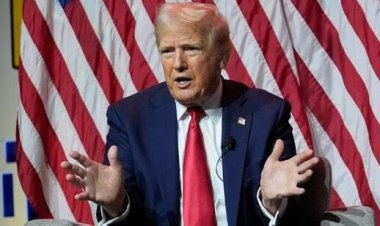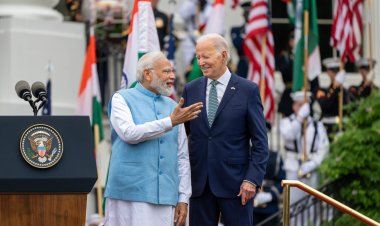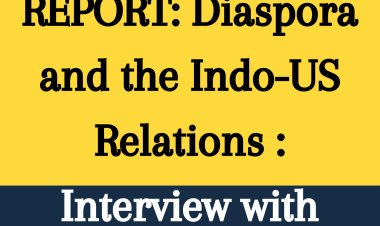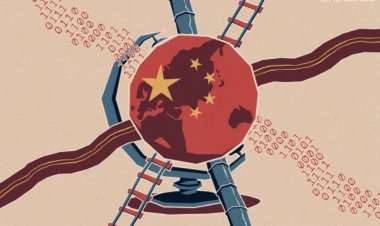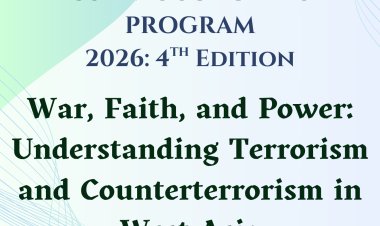How 'Russiagate' Lawsuit Could Expose the Clinton–Yunus Nexus
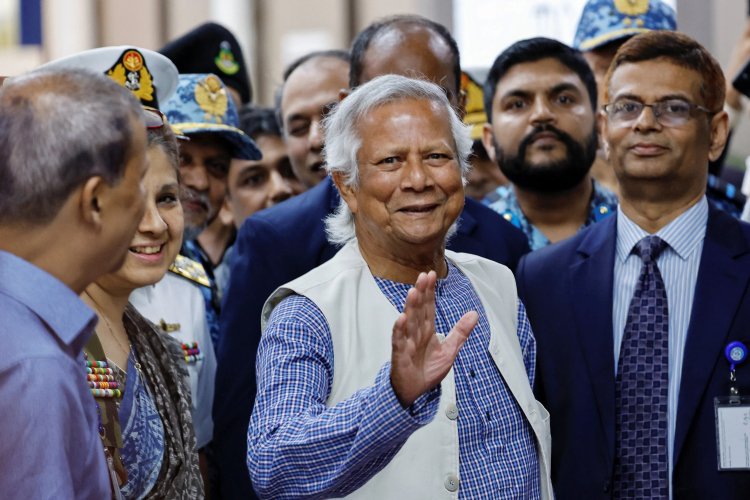
Analysis
By MA Hossain
For almost a decade, “Russiagate” has lived on as America’s political ghost: not fully resolved, not entirely dismissed, and never far from the nation’s arguments about power, influence, and truth. Donald Trump’s decision to revive his lawsuit against Hillary Clinton isn’t simply an effort to revisit a bitter chapter. It is an attempt to pry open a vault many in Washington prefer sealed. And in doing so, it has drawn an unexpected name back into the conversation—Muhammad Yunus.
His return to the American political spotlight is not accidental. The web of relationships connecting the Clinton Foundation, Grameen America, and the Democratic donor universe places him in a corridor where philanthropy, politics, and influence have long walked hand in hand. In an era when donor ecosystems themselves are subject to scrutiny, Yunus stands closer to the epicenter than he might like.
The roots of the Clinton–Yunus partnership reach back to the mid-2000s, when Hillary Clinton, then a senator, positioned him as a global exemplar of development innovation. That endorsement was more than symbolic. It gave Grameen America—Yunus’s U.S.-based microfinance venture—instant credibility in Democratic policy circles. The Clintons treated Yunus as a model of humane capitalism, and in return he embraced their political project with unusual enthusiasm.
Grameen America’s contributions to the Clinton Foundation fit neatly into this architecture. They were presented as charitable cooperation, but the timing and scale raised familiar questions about how the Clintons blended nonprofit outreach with political relationships. Critics have long argued that the foundation’s global philanthropy often aligned conveniently with the personal and political interests of its founders. Yunus’s ascent in the American political arena mirrors this pattern precisely.
The partnership did not stop at philanthropy. It carried distinct political undertones for Bangladesh. Hillary Clinton repeatedly championed Yunus, to the point of being seen as lobbying for his elevated political role. For many observers, this was puzzling: why was a former U.S. secretary of state so invested in advancing the career of a foreign economist?
That question becomes less mysterious when viewed through the lens of political alignment. Yunus’s orbit has, for years, overlapped almost exclusively with Democratic power centers. Barack Obama lauded him as a reformer. George Soros embraced him as an ideological ally. At the Clinton Global Initiative, he was not just a guest—he was part of the inner circle.
These relationships gave Yunus international reach, but they also tied him to the very establishment Trump has spent his political life challenging. For Democrats, Yunus symbolized enlightened globalism. For Republicans, he increasingly resembled a foreign political actor cloaked in the language of development.
The alignment became sharper after the change of government in Bangladesh. Yunus’s arrival in Washington was met with applause from the same Democratic figures who had championed him for years. Alexander Soros boosted his public visibility. The Biden administration rolled out developmental commitments aimed at supporting the new Dhaka government. The pattern was unmistakable: Yunus was being welcomed as an ideological partner, not merely as a development practitioner.
His reaction to Trump’s 2016 victory made this even clearer. While global figures typically respond to U.S. elections with diplomatic restraint, Yunus did the opposite. He referred to Trump’s win as “a solar eclipse … black days,” a choice of words more associated with partisan commentary than global statesmanship. He warned that America had chosen “the wrong type of politics.” He urged Trump to “build bridges, not walls”—not as an appeal, but as a rebuke.
His emotional response reflected more than shock. It revealed genuine anxiety. Trump’s victory threatened to disrupt the Democratic networks that had nurtured Yunus’s political and financial trajectory for decades. For someone whose ventures expanded under Clinton patronage, the arrival of a president openly hostile to that establishment was more than ideological discomfort—it was a potential exposure.
Trump, for his part, did not forget the hostility. Republican circles circulated reports suggesting that Yunus and his allies had contributed substantial sums to the Clinton ecosystem. When a delegation visited him at the White House, Trump reportedly reminded them that Yunus “spent millions to ensure Trump’s failure.” Whether literal or rhetorical, it showed that Trump saw Yunus not as a benign economist but as an operative with political intent.
Meanwhile, the relationship between Grameen America and the Clinton Foundation became difficult to dismiss. A foreign-linked financial entity supporting a politically powerful American nonprofit—while its founder publicly attacked a sitting U.S. president—was bound to raise questions among Trump loyalists. Now, with Russiagate resurfacing in court, those questions may no longer remain at the political margins.
This is where Yunus’s position becomes precarious. If Trump succeeds in reopening the origins of Russiagate, the inquiry will inevitably widen. Any institutions tied to Clinton donor networks—especially those with foreign affiliations—could find themselves drawn into the conversation. Grameen America fits that profile. So does its founder, who not only maintained deep ties to the Democratic establishment but also criticized Trump with unusual fervor for a foreign figure.
The Bangladesh context only adds fuel. When Trump publicly condemned violence against minorities during Diwali, Yunus’s government brushed it aside as “lobbyist misinformation.” His press secretary accused American conservatives of manipulation by external actors—while ignoring Yunus’s own history of lobbying within Washington’s corridors. It was a dismissive response that revealed political discomfort rather than confidence.
The revived Russiagate case, then, is more than a courtroom battle between Trump and Clinton. It is a referendum on political memory. If the court even partially validates Trump’s claims of political manipulation or intelligence misuse, the pressure to examine associated networks will increase. For Republicans, that means scrutinizing not only the Clintons but the constellation of institutions that benefited from their global reach.
One of those institutions is the Clinton Foundation. Another is Grameen America. And standing at the intersection is Muhammad Yunus.
The question is no longer whether Russiagate will continue to haunt American politics. It is whether its reach will extend into the territory where philanthropy, political loyalty, and global influence converge. If that happens, Yunus may find himself answering questions he has long avoided—about money, alliances, and a political posture that placed him squarely against a U.S. president.
If the scrutiny comes, it will not be because Yunus is a development icon. It will be because he entered American politics—and chose a side.
Disclaimer: This paper is the author's individual scholastic contribution and does not necessarily reflect the organization's viewpoint.
M A Hossain, political and defense analyst based in Bangladesh.


